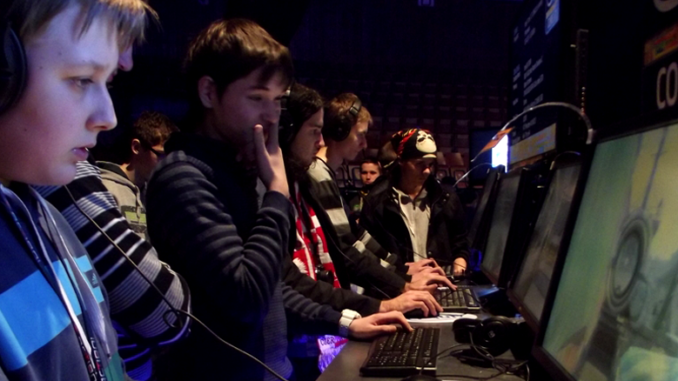
In the wake of the Jacksonville Landing shooting, police have determined that the shooter deliberately targeted fellow competitors at the “Madden” football tournament.
It has been established that the parents of the shooter sought psychiatric help for the eventual shooter due to his gaming habits.
“David would go days without bathing, would play video games until 4 a.m. on school nights, would walk around the house in circles,” Howard County Circuit Judge Lenore Gelfman wrote in 2010. “[He] was failing all classes at Hammond High, was unresponsive to school teachers and uncooperative with school psychotherapists/counselors, and was extremely hostile toward his mother.”
Baltimore Sun
Katz once punched a hole through his mother’s bedroom door to retrieve the video game controllers she had taken from him, his mother, Elizabeth Katz, told the court.
On the surface, this looks like a standard obsessive behavior. There’s another factor here, though. E-sports.
Game tournaments have been around for a long time. Poker is the most obvious of them; poker tournaments have been featured on television, in casinos, and elsewhere. Bowling, Magic: the Gathering, bridge and chess have all earned money for the best players. E-sports seem like the latest “thing” in that regard.
To compare electronic gaming to those other games, however, is a mistake.
In 2010, e-sports – the catch-all term for competitive video game playing – had tournaments with a combined total prize money available of roughly $5 million dollars. By 2015, that was more than $45 million. By 2017, market estimates were that e-sports were responsible for almost $700 million in revenue and that they would be responsible for more than $1 billion by 2019. A following report in 2018 showed that they had been wrong in their estimates because they’d under-projected and growth was faster than expected.
There are teams of gamers, now. League owners are familiar names like Jerry Jones and Mark Cuban, and eventually the gamers are expected to not simply be competitive with traditional athletes in terms of salaries but to top their non-electronic rivals.
It hasn’t happened yet – currently, there are only nine players in the world who have earned more than $3 million/year playing video games, and only 61 who have earned more than $1 million/year – but that simple statistic tells the story. In less than a decade, the market has grown from $5 million spread across all game players to thousands of competitors, some approaching $5 million individually.
Not only is revenue generated by winning tournaments, but also simply by playing the games online. People appreciate learning tricks and tips from professionals and people appreciate demonstrations of skill. There are websites dedicated to nothing but streaming video of people playing video games. Some players also have Youtube channels, with ad revenue sharing. Better players can make money by tutoring less experienced ones.
The market is worldwide. Unlike a football team, where the majority of the fan base will be local to the stadium, an e-sports team is playing on the video screen of every fan. Fans have the ability to connect directly with an e-sports player far more easily than with any traditional athlete. With translation software, an e-sports player could walk away from a game and immediately get into a discussion with fifty thousand fans from around the globe.
And, lastly, anyone can be an e-sports top player. Male, female, young, old… as long as they put in the time and effort to learn everything about their format, have the reflexes to react to action on the screen and spend the time to study their opponents’ habits, they can potentially be recruited to one of the teams.
This is reality. But, for all that many people who grew up playing complex video games understand it, many older people – those who grew up playing either nothing or games like Donkey Kong, Minesweeper or X-Com – don’t recognize the change. For them, playing video games is not a career.
The siren call for youth has always been the notion that they know more than their parents. For those who are top-level e-sports players despite the concerns of family, they’ve had that viewpoint justified. The market has gone from virtually nonexistent to the level of a professional hockey player in just a few years, and it’s expected to top that of the highest baseball, football or soccer players within a decade.
The current group of players know this… and they know that if they simply hold on to their status for a few more years, they have the chance for a payoff. They’re imagining that they could be set for life by playing video games and for a handful, they’re right.
This is the current state of e-sports. It does not in any way excuse what happened on Sunday. The murders were an irrational reaction by a person with mental and emotional issues. But it may explain some of the stresses players are putting on themselves, and why many fail to recognize that it’s “just a game.”
